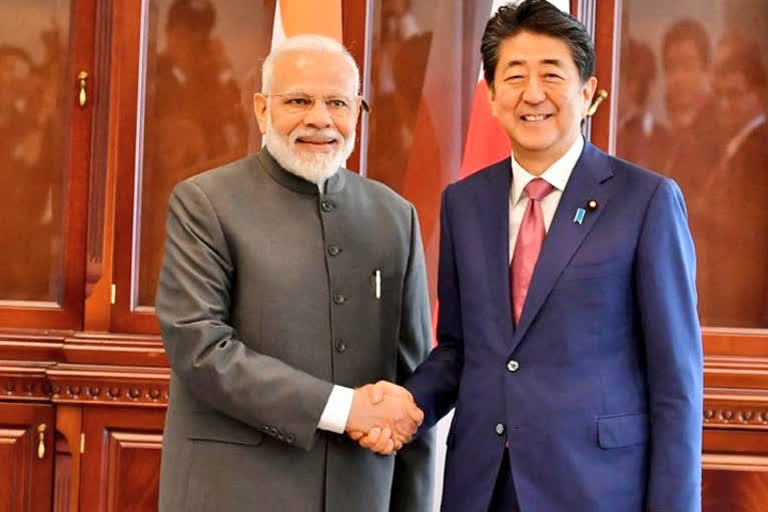New Delhi: With Shinzo Abe announcing his resignation as Prime Minister of Japan, that country again faces a period of political instability while India stands to lose one of its most vocal champions in the global arena. Abe had personally invested in getting the India relationship to centre stage in Japanese policy.
While the foundation for the improving “Global Partnership between Japan and India” was laid in 2001, and annual bilateral summits were agreed upon from 2005, Abe accelerated the pace. During his first tenure, he visited India and addressed the Indian Parliament in August 2007, clearly outlining his vision for the relationship in his “Confluence of the Two Seas” speech, spelling out his concept of the Indo-Pacific, now a crucial pillar of India-Japan relations. Since his second tenure from 2012 he has visited India thrice, including as chief guest for the Republic Day celebrations, and established a close personal bond with the Indian prime minister.
For both Abe and Narendra Modi, the friendship might appear unusual, given that the former is the closest inheritor of political royalty possible in Japan (distinct from the ancient lineage of Japan’s Chrysanthemum throne monarchy) – Abe’s grandfather Nobusuke Kishi was prime minister (1957-60), his father Shintaro Abe was Foreign Minister and he has overtaken his great-uncle Eisaku Sato to become Japan’s longest-serving PM – while Modi has risen from humble beginnings. Their strong nationalist outlooks, shared vision of “stronger” nationhood and Abe’s gradual move to take Japanese capital out of China has not just spawned an increasing convergence of national interests, but also their personal bond, apparent from Abe hosting Modi at his ancestral home in Yamanashi, the first foreign leader to receive the honour.
On the foreign policy front, Abe managed to stay on the right side of Japan’s major ally, the USA, led by a mercurial Donald Trump, while standing firm against an increasingly powerful and assertive China by reaching out, among others, to India and launching, with it, the Asia Africa Growth Corridor as an alternative model to the Chinese Belt and Road Initiative. He has also been the prime mover in bringing together the ‘Quad,’ or the quadrilateral of democracies including, besides Japan and India, the US and Australia, as a clear though unstated signal to China that its assertive policies in the region were irksome.
Despite his global acceptability, Abe has not been able to enthuse popular support within Japan, particularly for his more nationalist policies and efforts to rework the country’s Constitution and revise history, particularly Japan’s colonial history and the Japanese armed forces’ role in wartime exploitation, violence and slavery of ‘comfort women’ in Korea. As his government’s recent White Paper on Defence showed, he has strengthened Japan’s Self-Defence forces to optimum levels.
